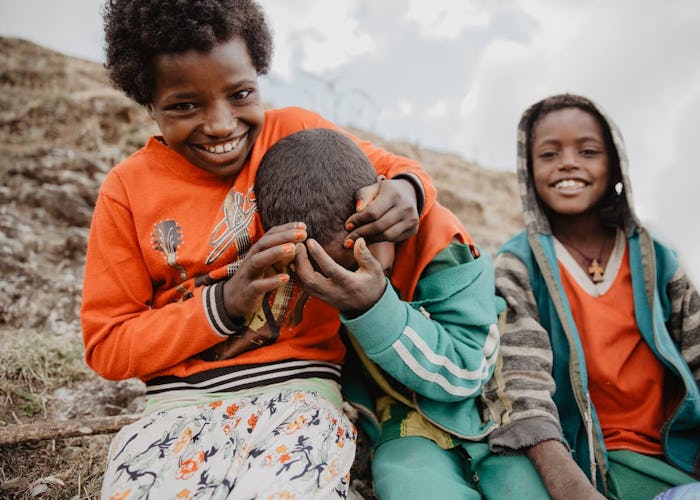You are making a difference in Ethiopia!
A glimpse of what your sponsored child’s life is like in Ethiopia:
HOME LIFE
- The family structure is much larger than a typical nuclear family. The oldest male is head of the household. Women are responsible for the children and home, which often houses four generations, as children are socially required to care for their parents.
- Traditional homes are round dwellings constructed of “wattle” and “daub” (interwoven sticks covered with mud). Roofs are made out of thatch. In wealthier urban areas, homes may be multi-story residences made of concrete and tile.
- A spongy unleavened bread called “injera” is a popular staple for meals. It is often dipped into stews made of carrots, cabbage, potatoes, and lentils.
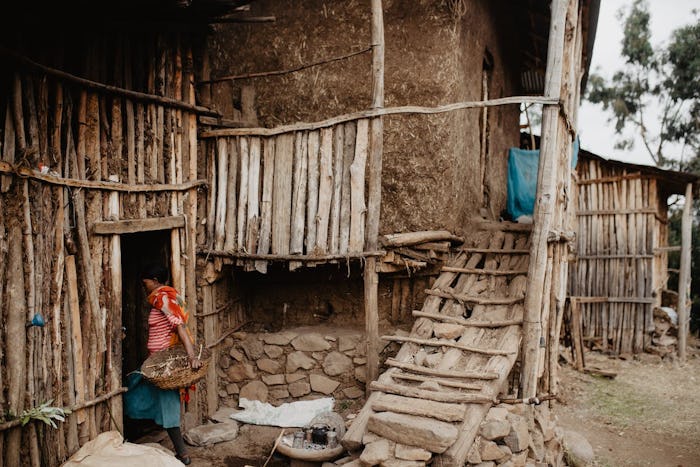
SCHOOL AND EDUCATION
- Children in urban areas start attending school around the age of 5.
- In rural areas, there are fewer schools. Children are often expected to do farm work, resulting in a very low percentage of attendance at any age in rural areas.
- University is free, but admission is very competitive and only about 20% of students who take admissions tests are accepted.
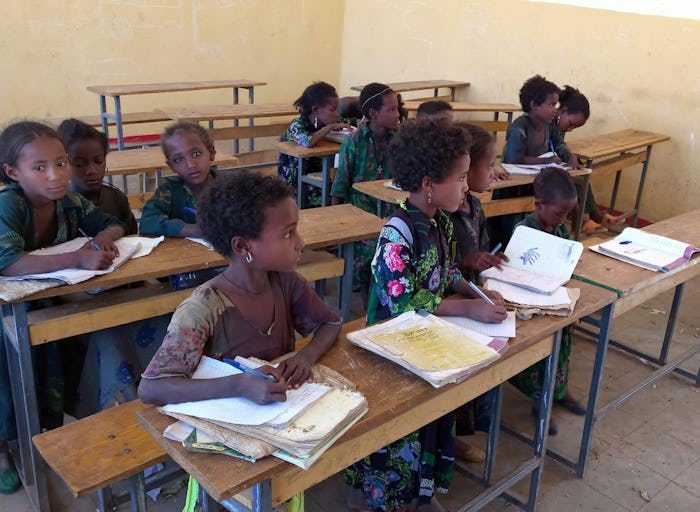
ETHIOPIAN CULTURE
- There are 86 known indigenous languages in Ethiopia, and 82 are still spoken.
- Many churches in the northern areas are carved out of rock and have been actively used for centuries.
- Music in Ethiopia is as distinctive and diverse as the country’s many ethnic groups. Ethiopian music is most known for its pentatonic style and use of string instruments, flutes, and hand drums.
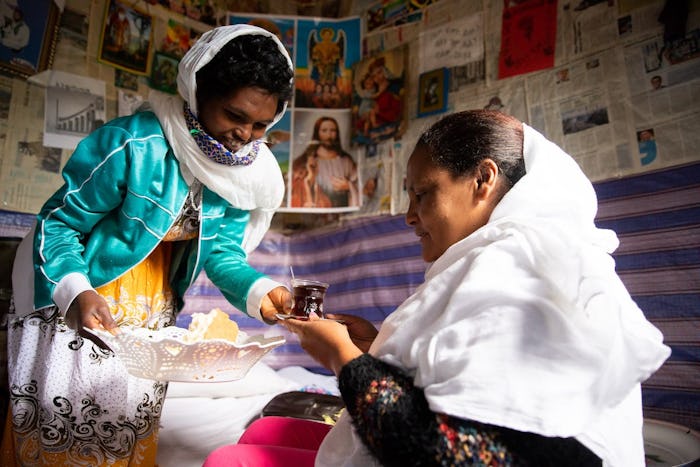
COUNTRY INFO
Ethiopia is a rugged, landlocked country split by the Great Rift Valley. It shares a border with Eritrea to the north and northeast, Djibouti and Somalia to the east, Sudan and South Sudan to the west, and Kenya to the south. It is the most populous landlocked country in the world, as well as the second-most populous nation on the African continent, after Nigeria. It is well-known for its production of coffee.
- Capital: Addis Ababa
- Population: 108,386,391
- Languages: Amarigna, Oromigna, Tigrigna, English, and Arabic

FH IN ETHIOPIA
In 1984, Food for the Hungry (FH) began working in response to the famine in Ethiopia, which grew into large-scale food relief, rehabilitation, and long-term food security. Since then, FH has focused efforts on community development to improve living conditions, prepare for harsh environmental factors such as droughts, and assist in improved agricultural techniques. Additionally, Ethiopia has areas that are classified as “sensitive,” where traditional evangelism is ineffective or even illegal. FH still strives to share the love of God in a culturally appropriate way.
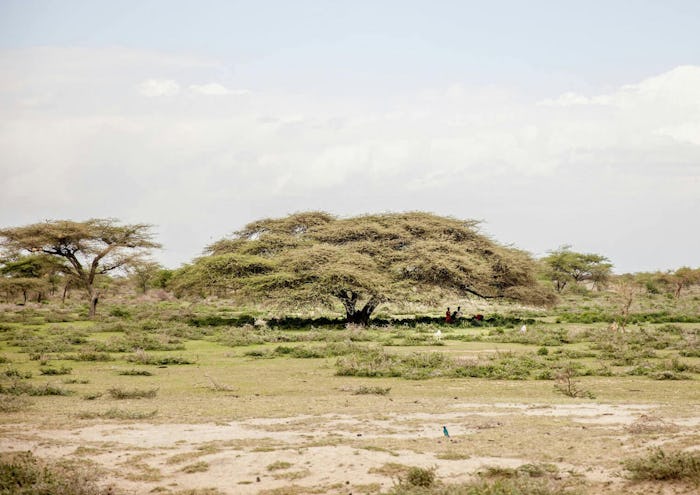
AS A CHILD SPONSOR:
- You are improving food security and livelihoods through seed distributions, livelihood groups, creation of networks for farmers to support each other, irrigation projects, and agricultural conservation efforts.
- You are improving the health and nutrition of children, pregnant and lactating mothers, and young women through health training and care-group lessons.
- You are teaching children about hygiene, sanitation, the importance of education, and income generation through extracurricular activities like sports and children’s clubs.
